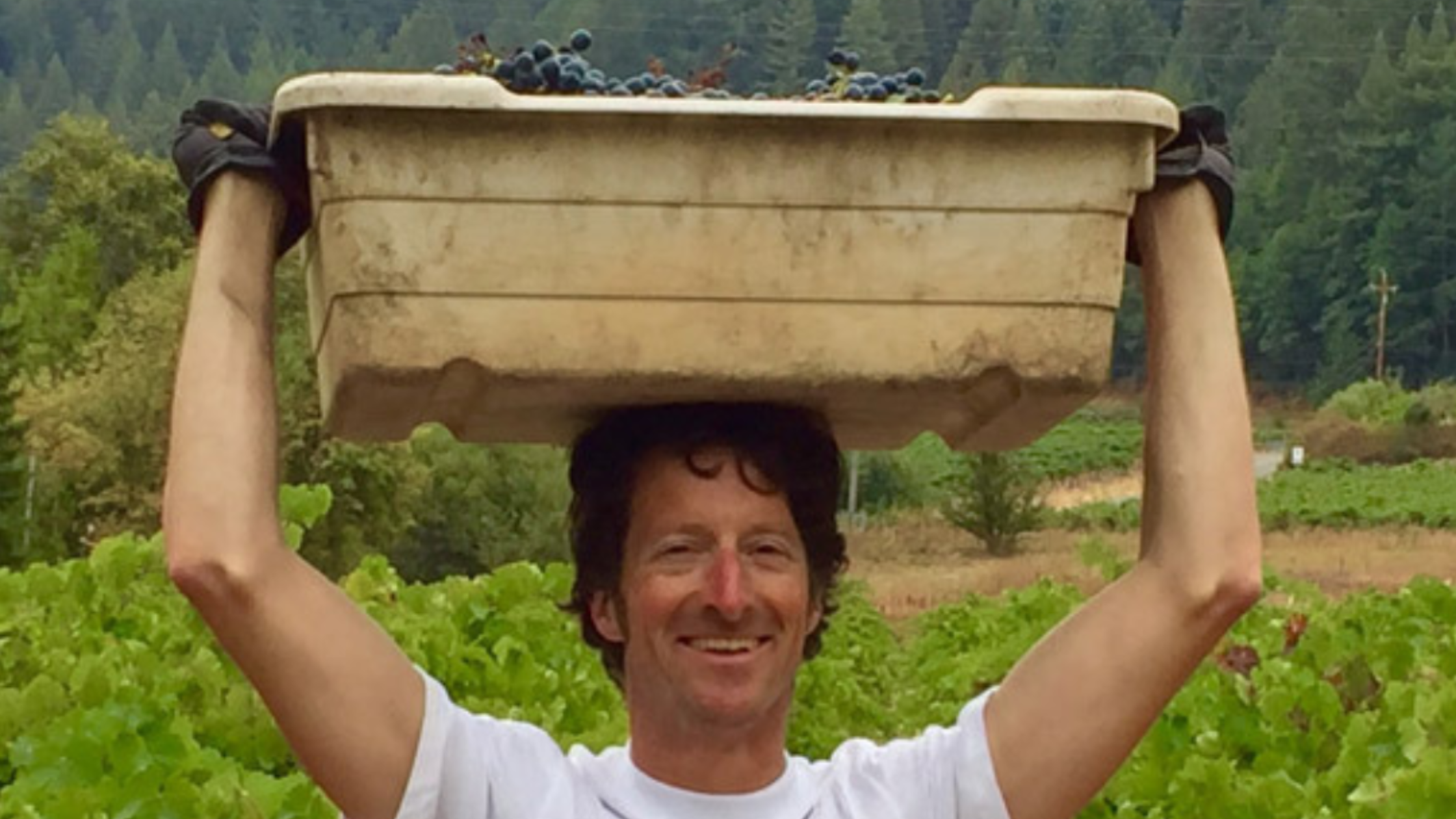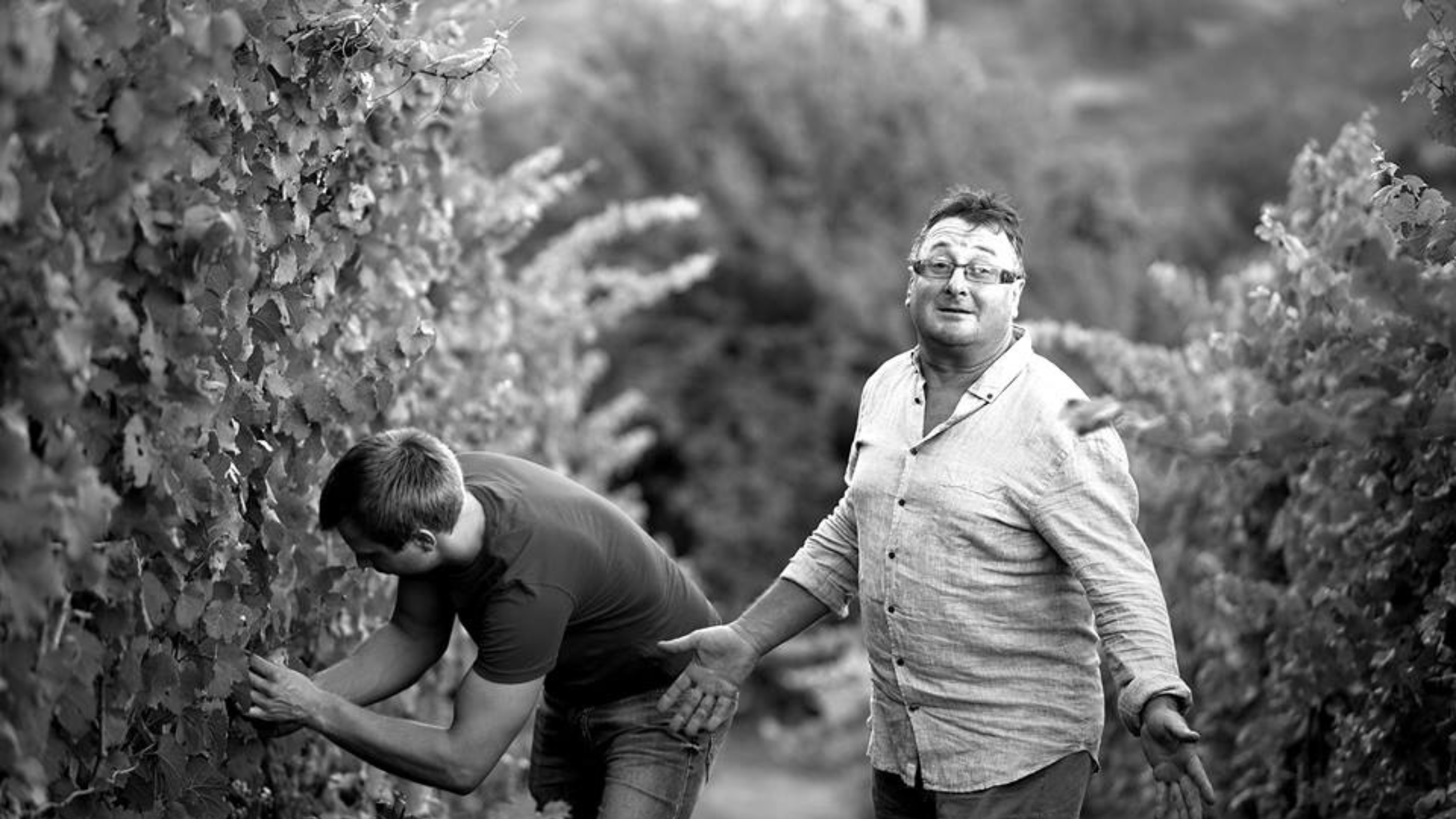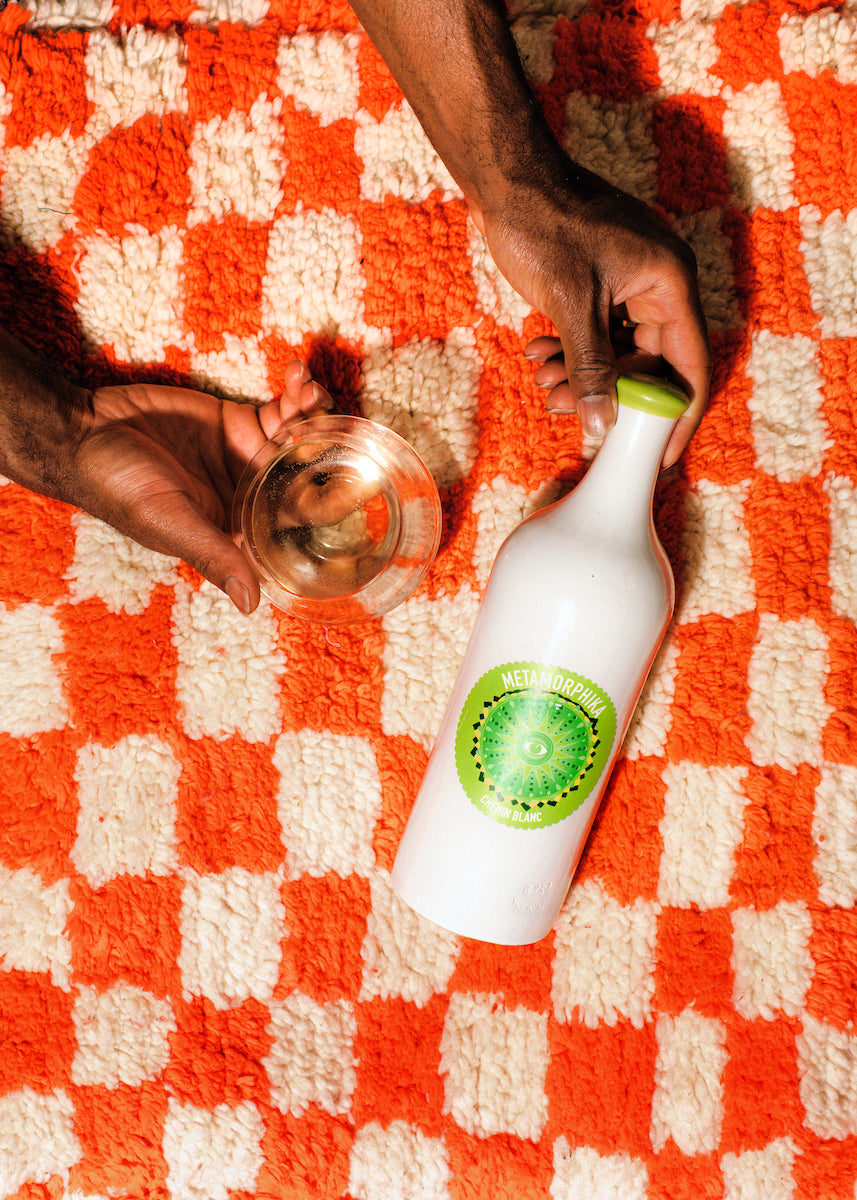Welcome to the January 12 Bottle Club from MYSA Natural Wine!
A note from our founder:
Happy New Year friends! We hope your 2023 is off to a great start and we're here to make it EVEN BETTER with a mix of classic and a little out of the box wines for January. It's a liter party with some outstanding wines in large format! From a SA Pinot to a liter of delicious Alsatian Pinot, to a low-ABV Verjus style wine from Old Westminster and bubbles from Purity you'll have something for every occasion.
-Holly, Founder - MYSA Natural Wine
- Noir de Doot Dah - Good Intentions
- Zinfandel - Breaking Bread
- Bloom - Old World Winery
- Tradition Faugères - Clos Fantine
- Kadarka - Sebestyen Ivan Volgyi
- Zan - Keltis
- Anjou Blanc - Pascal Biotteau
- Cru Boy Jealous - Hollow Wines
- Disco! Skin Contact - Subject to Change
- Pink Pét-Nat - Vivanterre
- Salt - Old Westminster
- Rosé of Carignane - Post & Vine
- Wine Evaluation Sheet
Noir de Doot Dah - Good Intentions
Mount Gambier - Australia
Description:

Burgundian style Pinot with an authentic expression of the volcanic terroir of Mt. Gambier. This creates a juicy fresh cherry nose with gravel and crisp acidity. Slightly reminiscent of Etna Rosso, this wine exudes a bright, earthy minerality that is signature to wines from volcanic soils, yet is unmistakably Pinot Noir.
Pairings: Barbecue, Spiced Food, Charcuterie
Serving Temperature: 54°- 60°
About Good Intentions

One is a farmer, the other a musician, Andrew and Louise, a husband and wife team who moved back to Mount Gambier (Andrew’s childhood town) to start a family and a wine label. They wanted to grip the earth with their toes and use their knowledge in organic farming and permaculture to create their own wine label. They wanted to create a community where they could be proud to raise their daughter Frankie. Their dream is to inspire homegrown eating, drinking, and music that nourishes the land and reflects their personalities and to share it with the community.
Zinfandel - Breaking Bread
Redwood Valley - USA
Description:

A medium ruby natural red wine with berry fruit-forward tannins of black fruits, notes of spicy pepper, and fresh green herbs. Fresh acidity on the back of the palate with a sweet oaky finish!
Pairings: Portobello Mushrooms, Stuffed Aubergine, Fried Manchego
Serving Temperature: 54°- 60°
About Breaking Bread

"Creating Breaking Bread has informed my approach to winemaking. I have the technical foundation and confidence of someone who has been making wine successfully for nearly two decades, and the curiosity and inspiration to make high quality, delicious natural wines – and this is just the beginning! -Breaking Bread
Bloom - Old World Winery
California - USA
Description:

A chillable natural red wine that is berry fruit-forward, with light tannins and a fruity, dry finish!
Pairings: Lemon-Butter Salmon Pasta, Cornbread Casserole, Roasted Chicken
Serving Instructions: 54°- 60°
About Old World Winery

Pastoral winemaker and proprietor, Darek Trowbridge, has 20+ years of hands on experience in the art and science of vineyard management, grape production, and natural winemaking. His passion is inviting nature into his winemaking. His processes are simple and direct and eliminates the need for any manufactured (man made) chemicals. This process involves effort and shepherding but not manipulation. - Zev Rovine
Tradition Faugères - Clos Fantine
Faugères - France
Video Coming Soon!
Description:

A deep red natural wine that is berry fruit-forward, with bright acidity, medium tannins, notes of white flowers and leather, and a long smooth finish!
Pairings: Pork Blanquette, Roasted Veggie Ratatouille, Duck Confit
Serving Instructions: 54°- 60°
About Clos Fantine

Clos Fantine is a family-owned winery in Faugères AOC. Andrieu Siblings Caroline, Olivier, and Corine wines have been a staple for the Languedoc section for some time now. The estate is planted with organic Aramont, Cinsault, Grenache, Mourvèdre, Terret Blanc and Gris, and Syrah.
Kadarka - Sebestyen Ivan Volgyi
Szekszárd - Hungary
Video Coming Soon!
Description:

A classic red, sweet, spicy, and oaky with dark red fruits. Mild tannins, medium-bodied, and easy to drink!
Pairings: Appetizers, Meaty Fish, Pasta
Serving Instructions: 54°- 60°
About Sebestyen Ivan Volgyi

The road to Sebestyén Pince is not an easy one, steep, narrow, and full of blind spots. In the United States it would be little more than an ATV path, but if you dare to make the trip you will be invited into the garage winery (literally it used to be the garage) and rewarded with a taste of delicious wine from one of Hungary’s rising star winemakers. Csaba Sebestyén does not come from a winemaking family, he never went to school for it, never even really thought about it as a career, in fact he was a mechanic in his previous profession. That all changed on a day in 1998 when Csaba, an avid fisherman, was drinking his father’s homemade wine while waiting for a fish to bite. By chance a French Sommelier, and part time winemaker himself, noticed Csaba and asked if he could try the wine. Csaba was curious to know why the Frenchman took so much time to smell and savor the wine, to him it was something to drink while he passed the time fishing. The Sommelier explained the interplay between smells, flavors, and tannins and how they can all help to enhance the experience. Csaba was hooked, deciding then and there that he would begin making his own wine that Autumn. Flash forward almost Twenty years and now Csaba’s wines are considered some of the best in not just the Szekszárd region, but in all of Hungary. Now joined by his sister Csilla, who caught the wine bug in her own right and worked as sommelier at the two-Michelin-star Andrew Fairlie in Scotland, the two are shaping Sebestyén into a winery that showcases the amazing potential of the Szekszárd wine region, along with it’s holy trinity of Kadarka, Bikavér and Kékfrankos.
Zan - Keltis
Posavska - Slovenia
Description:

Extremely juicy wine, most often called “malinovec” (raspberry liqueur). Perfect for every day wine!
Pairings: Barbecue, Pasta, Dried Meats
Serving Temperature: 54°- 60°
About Keltis

Keltis wines attest to the artisan’s approach in the vineyard and the cellar, they express their terroir, and contain minimum quantities of sulfites. A big share of our wines is unfiltered and that is why our wines carry inside them life and the potential for further development. Marl, which is the main rock of our terroir, provides our wine with minerality, especially felt in the macerated wines.As dictated by our philosophy, our work with wines is done at the time of the full moon, when the wine is at its peak and can fully express its potential... Western winds blowing from neighboring Orlica take care of the ventilation and are our natural ally in the fight against diseases. Soil composition includes marl, sandstone with quartz binder, clay, Lithuanian limestone, and limestone with the application of chert. Vine varieties: autochthonous rumeni plavec (used in sparkling wines because it gives the wine freshness and character), cabernet sauvignon, chardonnay, merlot, Pinot noir, ottonel muscat, Riesling, yellow muscat, pinot gris, and traminer. - Zev Rovine
Anjou Blanc - Pascal Biotteau
Anjou - France
Description:

A straw-colored natural wine with underripe tropical fruit aromas, notes of honey, light acidity and a lemony finish!
Pairings: Shrimp Scampi Linguine, Chicken Kiev, Curry Chicken Salad
Serving Instructions: 41°- 45°
About Pascal Biotteau
Combining the fresh acidity of the “Anjou Blanc’s” limestone with the flinty, mouth-coating richness of the “Anjou Noir,” the estate’s classic style offers a beautiful composite picture of Anjou as a whole, with honeyed notes of apricot giving way to a tangy mineral finish. The sort of classic “bistro wine” wine that you’d dream of drinking on a warm summer evening in Paris, it’s fantastic for fresh goat-cheese salads, fish in cream sauce, or even herb-roasted pork or chicken. Just don’t serve it too cold, according to Mary, to avoid masking its full depth and aromatic complexity. - Mary Taylor Wine
Cru Boy Jealous - Hollow Wines
Santa Cruz Mountains - USA
Description:

A light coral pink natural orange wine with sweet and sour berry notes. Herbaceous, fresh light tannins, and balanced acidity with a soft finish!
Pairings: Pizza, Pork Tenderloin, Kebab
Serving Instructions: 45°- 50°
About Hollow Wines

Winemaker: Quinn Hobbs Hollow Wines is a newish natty California project from Woodson “Quinn” Hobbs, who grew up in Portola Valley, with his Aussie wife Alison and their daughter Mina. They currently live in LA but make the wine in Gilroy, sourcing fruit from organic vineyards up and down the state. Quinn not only has the Midas touch with wine, he's also getting his PhD in global leadership and change so that he can help other wineries produce low-carbon wine that’s better for the planet and the people. To that end, Hobbs requires fruit sources to be organic. If you use Roundup anywhere on the property, it's a firm no-go. “Roundup is a disaster for this planet,” he says. He considers himself a practitioner of No B.S. winemaking, which he equates to minimal intervention and using wild yeast with no adds other than some sulfur. Some might call it natural winemaking, but he prefers to say “simply good wine making.”
Disco! Skin Contact - Subject to Change
Mendocino - USA
Description:

Tropical fruit-flavored golden straw natural orange wine that is citrusy on the nose, juicy with hints of spice on the palate, good tannin with a fresh and lasting finish!
Pairings: Coconut Curry, Tajin Food, Jerk Chicken Food
Serving Instructions: 50°- 54°
About Subject to Change

Layering my passion for European natural wine and my knowledge of California viticulture and wine production, Subject to Change Wine Co was born as a way to connect my love of natural wine to my love of California, the land and the culture of growing and consuming locally. -Alex Pomerantz, Founder and Winemaker
Pink Pét-Nat - Vivanterre
Auvergne - France
Description:

Vivanterre is delivering the goods once again! Super tasty pet-nat made from a blend of Gamay, Syrah, Pinot Gris, Pinot Blanc, and Sylvaner. Bright juicy fruit met with herb notes and apple notes.
Pairings: Brunch, Sushi, Roasted Chicken
Serving Instructions: 48°- 53°
About Vivanterre
 Vivanterre is a natural wine produced in the Auvergne region of France by Patrick Bouju and Justine Loiseau, and founded by Rosie and Max Assoulin, with the support of renowned sommelier Cedric Nicaise. Using organically and biodynamically farmed grapes, vinified using natural processes, and untouched by any fining, filtering, or added sulfites, Vivanterre reflects the “Living Earth” from which it comes. - Vivanterre
Vivanterre is a natural wine produced in the Auvergne region of France by Patrick Bouju and Justine Loiseau, and founded by Rosie and Max Assoulin, with the support of renowned sommelier Cedric Nicaise. Using organically and biodynamically farmed grapes, vinified using natural processes, and untouched by any fining, filtering, or added sulfites, Vivanterre reflects the “Living Earth” from which it comes. - Vivanterre
Salt - Old Westminster
Maryland - USA
Video Coming Soon!
Description:

A light golden natural white wine with unripe stone fruit flavors, and bright acidity, with a nutty and citrusy taste!
Pairings: Pizza Bianca, Drunken Mussels, Turkey
Serving Instructions: 50°- 54°
About Old Westminster

The Baker family, established in 1985, didn’t always know they would spend their lives making wine together. Jay & Virginia, founders of the family, always dreamed of working with their children and preserving their farm. In 2008, all three of their children – Drew, Lisa and Ashli – were away at college, and they found themselves empty nesters. It was time to either put their land to work, or move on. Upon discovering that grapevines have an affinity for rocky soil, elevation, abundant sunshine and a steady year-round breeze – all characteristics of their land – the family explored the idea of planting a vineyard and starting a winery together. Today, Jay & Virginia support their children in the family’s wine business. And, as you can imagine, they’re enjoying the view. Not just of the flourishing vineyard, but also of the energy and determination they see in Drew, Lisa and Ashli building this great thing together. They love their children’s synergy and their ambition to put Maryland wine on the world map.
Rosé of Carignane - Post & Vine
Contra Costa County - USA
Description:

A bright pink-colored natural medium-bodied rosé with juicy tropical summer fruit flavors, subtle floral hints and very easy-drinking tannins! Perfect fall rosé!
Pairings: Schnitzel, Patotin Stewed Duck, Spanish Pork
Serving Instructions: 50°- 54°
About Post & Vine
 Testa Vineyard is located in Calpella, California in the Redwood Valley of Mendocino County. This beautiful ranch was founded in 1912 and is being farmed by the 4th and 5th generation of the Testa (Martinson) family. The head trained vines are planted on rolling hills in rocky, red, well drained soils composed of sandy and pebbly loam. The Carignane, Petite Sirah, Zinfandel, and Grenache for Post & Vine were planted in the 1950’s and are dry farmed resulting in small clusters of concentrated, complex fruit. -Post & Vine
Testa Vineyard is located in Calpella, California in the Redwood Valley of Mendocino County. This beautiful ranch was founded in 1912 and is being farmed by the 4th and 5th generation of the Testa (Martinson) family. The head trained vines are planted on rolling hills in rocky, red, well drained soils composed of sandy and pebbly loam. The Carignane, Petite Sirah, Zinfandel, and Grenache for Post & Vine were planted in the 1950’s and are dry farmed resulting in small clusters of concentrated, complex fruit. -Post & Vine
Wine Evaluation Sheet
Want to have some fun evaluating and taking note on your wine? Check out our natural wine tasting sheets we made special for the club!


